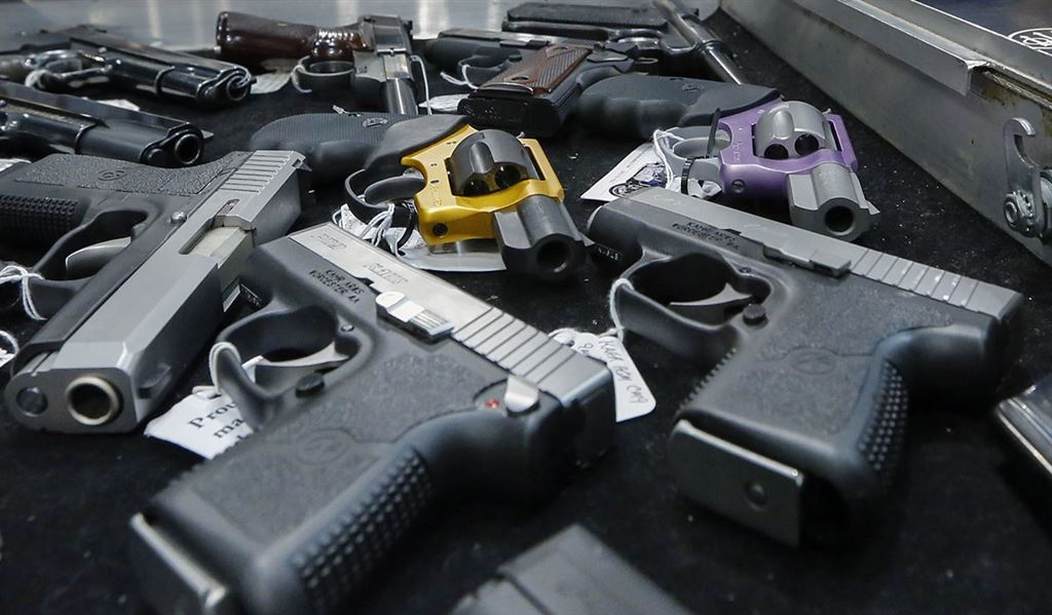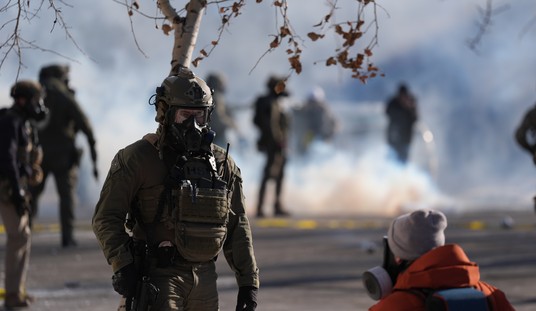The Trace exists to push an anti-gun narrative. That's what they do and, to their credit, they're pretty open about it. I disagree with what they do, but so long as they're doing it as honestly as possible, I can at least respect the hustle.
However, the problem is that in a recent piece about the anniversary of the Brady Bill, one in which they try to push universal background checks as well, the writer is either being willfully dishonest or just stupid.
It could go either way, really.
On February 28, 1994, the Brady Handgun Violence Prevention Act took effect, implementing a nationwide system for background checks on gun sales. Known as the Brady Bill, the legislation standardized what had been a state-by-state patchwork of vetting for prospective gun owners, and introduced background check systems to 32 states that didn’t have one.
Brady requires gun stores and other federally licensed firearms dealers to contact the Federal Bureau of Investigation to check a gun buyer’s background, drug use, and criminal history. But Brady doesn’t apply to firearm sales that don’t go through a licensed dealer — at gun shows and yard sales, between friends and strangers, or arranged through online listing sites like Armslist and GunBroker.
In the years after Brady’s passage, 70 bills were introduced in Congress that tried to narrow or close the private sales loophole, to no avail. Twenty states have passed laws requiring background checks on every gun sale, but 30 states have not. In those states, someone can buy a gun from a stranger with no vetting.
They leave out that a lot of people were willing to vote for the Brady Bill specifically because it didn't cover all gun sales. Without that "loophole," there would have been no passage.
In other words, this is yet another example of anti-gun creep. They "compromise" on a measure--which means they don't take quite as much as they'd like--and then, down the road, they try to take the rest.
But as bad as this is, they get downright stupid in the next paragraph.
This gap in federal law has led to tragedy. The underage Columbine killers are among several mass shooters who got guns in private sales. States without universal background checks are among the states with the highest rates of gun death. Researchers estimate that nearly a quarter of gun sales still occur without background checks.
In retrospect, this seems like a glaring oversight. Were lawmakers aware of it then? To explain how the private sales loophole came to be, The Trace spoke to several people who were on Capitol Hill during Brady’s passage and in the years after as lawmakers tried in vain to expand the law.
The last paragraph above is entirely predicated on the accuracy of the information above it.
Yet let's take a look at it for a second.
The link on the Columbine killing doesn't exactly support their case. It notes that the killers had a friend go to a gun show and buy the guns. Yes, she bought them from unlicensed dealers, but she was of legal age to buy them and had a clean background check. This was a straw buy that likely would have resulted in them getting the guns regardless of a check being required.
The TEC-9 was sold to them via a coworker who knew they were too young to purchase the gun lawfully, but sold it to them anyway.
In other words, despite the lack of a universal background check system in place, the people who put the guns in those kids hands knew they were breaking the law as it currently stood. Why would anyone believe that throwing another law in would suddenly have prevented this from happening? Anyone who is the least bit rational and honest would have to admit that it's unlikely anything would have changed.
And yet, this is presented as if there were no laws in place to prevent those two scumbags from getting guns.
Now, what about the claim that as many as 25 percent of all gun sales occur without a background check. Is there any validity to that?
Probably not.
You see, the person who wrote that piece for The Trace where you'll find that claim also co-authored the "study" that claimed as many as 40 percent of gun sales had no background check years prior.
Now, anyone who is part of the gun community knows that most lawful gun sales are taking place at stores with an FFL, either a dedicated gun store or a pawn shop. All of those are conducted with a NICS check as federal law requires.
Whether the number is 40 percent or 25 percent--and the guy doesn't think he was wrong, he just thinks things have changed--the only way to potentially reach this claim honestly would require one to include black market gun sales.
Again, these are sales that were conducted illegally in the first place, likely knowing that the buyer couldn't lawfully purchase a firearm.
So tell me, how is a law going to stop people from doing something that already breaks the law?
The answer is that it can't, and yet, this is what The Trace is bringing to the table to justify gun control? One of the most famous cases of gun control failing miserably and statistics that are made up estimates that try to equate illicit gun sales with legal ones?
Yeah, they're not even trying to be honest anymore.
Of course, I'm not really going to say they ever put forth that much effort into it in the first place.









Join the conversation as a VIP Member